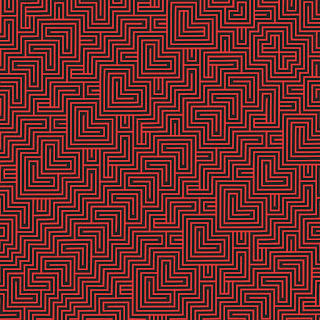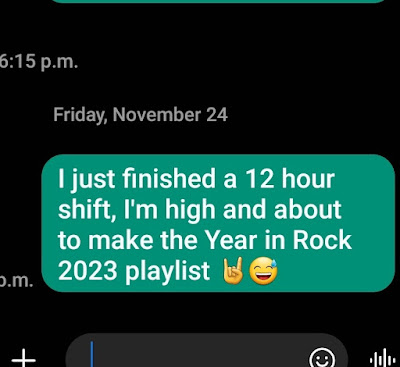IN REVIEW: The Black Angels - "Wilderness of Mirrors"
For fans of The Black Angels, it's been an especially long wait for their sixth album; after setting a new personal record for gaps between albums (the four years between Indigo Meadow and Death Song in 2013 and 2017, respectively), the Texan quintet went seventeen months longer before finally releasing Wilderness of Mirrors. The wait can be blamed on a couple of major contributors, one obvious (gesturing at the world) and one not so much (The Black Angels seem to have used the extra time to branch out from their core sound). Whatever the reasons, this album is better for it, thanks to some particularly engaged performances and some welcome surprises.
Whereas some previous albums have spent ample time trudging in thick psychedelic mud, Wilderness of Mirrors reveals more urgency and intensity in the performances; to wit, the leading third of the album, five songs which feature most of the band's fuzzy, established traits. However, the prototypical slower tracks (Without a Trace and La Pared) act as bookends, surrounding three quicker and more direct songs. History of the Future is thunderous and primal, perhaps the heaviest they've ever been. Empires Falling follows, another noisy tune with a propulsive, slashing riff and a swift groove that encourages ass shaking and head banging in equal measure. This energy flows into El Jardin, which is a bit more jangly but no less intense. This section, comprising the first 19 minutes of the record's 57, plays like a first act in which the band gives you the psych-rock you know and love them for; it's a strong set of songs that find the players doing what they do best.
The second act, as it were, is where Wilderness of Mirrors gets interesting. Reaching further back into psychedelic music's past, Firefly is drenched in mid-60s Euro reverb (complete with some French vocal accompaniment) and marks this part of the album as a new, distinctive adventure. This is confirmed with the pounding, spacey Make it Known, a song that steers into King Gizzard & the Lizard Wizard territory, whatever that means (perhaps it's a case of KGLW covering so much sonic ground that every other band must inevitably sound like them eventually). The more subdued, hazier mood intensifies on The River, which goes all in and directly addresses their psych-rock heroes by their first names before diving into the album's most kaleidoscopic bridge. Then comes the title track, its dissonant intro abruptly pulling us out of the haze before plunging us into absolute sonic chaos. Brains rewired, the song proper begins; it's an entirely new flavour, laden with horn section and ample atmosphere while doing most of its damage through a funky beat and bewitching guitar line. This is followed by Here & Now, the shortest song on the album and perhaps its greatest departure with its orchestration, acoustic guitar and almost jaunty beat; it sounds like it came out of some seedy European film in the late '60s, and it's practically brilliant.
The final stretch has its work cut out for it, and things start off weird and in widescreen with 100 Flowers of Paracusla, a melodic psych-folk song with western flare (extra props for the midpoint solo), yet another departure that works in the scheme of the album. There's another surprise coming with the snappy, fuzzed-out A Walk On the Outside; it's essentially a flowery juxtaposition of In-a-Gadda-da-Vida with some maniacal keyboard work and the album's most locked in drumming courtesy Stephanie Bailey. Those revved up vibes make way for Vermillion Eyes, a more shadowy tune with a throbbing rhythm and dense sonic flourishes to get lost in and yet another great solo toward the end; this leads into the penultimate track Icon, which feels more within the established Black Angels wheelhouse, albeit with some extra bluesy textures added into its hypnotic psych-rock. Then, there's closing track Suffocation, the longest on offer at nearly six minutes long and also perhaps the weakest of the bunch; it's got the album's most uninteresting, basic performances, feels stuck in place at times and fails to offer the same thrill even with the added squelches and keyboard splashes.
Across its fifteen tracks, it's clear there are a lot of ideas at play on Wilderness of Mirrors; that said, although I applaud the ambitions and general flow of the record, things do get a little touch and go toward the end. I wonder if a slightly more concise record such as their previous two with the best 10-12 songs on offer (if you're making me choose, lop off the last three songs and call it a day) might not make for a much better overall experience. However, even in its presented form Wilderness of Mirrors is admittedly a much stronger effort than I expected at this stage and after such a long wait; whether or not it's their best will vary from person to person, but I'm confident in calling this The Black Angels' most thrilling and intriguing release to date.
September 16, 2022 • Partisan
Highlights History of the Future • Firefly • Here & Now




Comments
Post a Comment